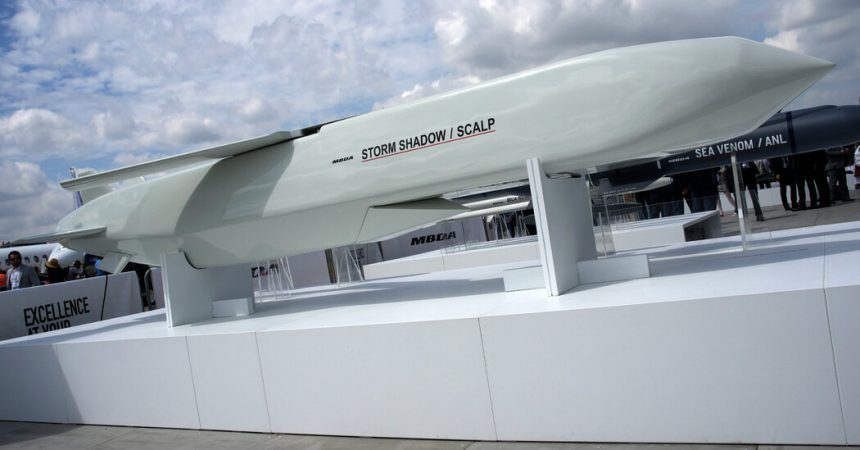The decision by the Biden administration to allow Ukraine to strike inside Russia with American-made weapons fulfills a long-held wish by officials in Kyiv that they claimed was essential to level the playing field.
The shift in policy followed declarations from nearly a dozen European governments and Canada that their weapons could be used to fire into Russia.
Freed from those constraints, Ukraine can strike into Russia with SCALP missiles from France and, potentially soon, the identical Storm Shadow missiles supplied by Britain. Although the British foreign minister, David Cameron, said on May 3 that Ukraine should be able to attack Russia with Western weapons, London has not yet given its full permission, President Volodymyr Zelensky of Ukraine told The Guardian in an interview published on Friday.
The SCALP and Storm Shadow missiles have a range of about 150 miles and are fired from Ukraine’s aging fleet of Soviet-designed fighter jets.
Several countries — Britain, Germany, Norway and the United States — have given Ukraine ground-based launchers that can fire longer-range missiles. Those systems are known as HIMARS and MLRS launchers, and they can also shoot the American-made Army Tactical Missile Systems, or ATACMS, which have a range of up to 190 miles.
However, in disclosing the new policy, U.S. officials said their policy would not permit the use of ATACMS or long-range missiles that can strike deep into Russia. Germany also has so far refused to donate its Taurus missile, with a range of 310 miles, in part out of concern that it would be fired deep into Russia and escalate the war. It is now even less likely to do so, Rafael Loss, a weapons expert at the European Council on Foreign Relations, said in an interview on Thursday.
Additionally, Britain, Canada and the United States have supplied Ukraine with medium-range missiles or ground-based small diameter bombs that can reach into Russia from 50 to 90 miles away.
But the new authorizations may have their greatest impact in the war for air superiority — especially if the allies allow their donated jets and drones to attack within Russia’s air space.
On Friday, the Dutch foreign minister said Ukraine could use the 24 F-16 fighter jets that the Netherlands has pledged to fly into Russian territory on war missions.
“If you have the right to self-defense, there are no borders for the use of weapons,” the minister, Hanke Bruins Slot, said ahead of a meeting of NATO’s top diplomats in Prague. “This is a general principle.”
It is not clear if Denmark would allow the 19 F-16s that it is sending Ukraine to fly into Russian air space, where they could be shot down. At least four other countries — Poland, Slovakia, Slovenia and North Macedonia — have provided Soviet-era fighter jets. Britain and Turkey have sent long-range attack drones that also could directly fly into Russia.
At the least, Mr. Loss, the weapons expert, said, the soon-to-arrive F-16 fleet would come equipped with long-range missiles that could target Russian jets “from behind their border,” with implications for Ukraine’s future air power.
“We’re not there yet,” he said, noting that Ukrainian pilots had yet to master the warplane with enough skill to counter Russia’s edge. “But there’s some potential for Ukraine’s future F-16 fleet to strike into Russian territory.”






